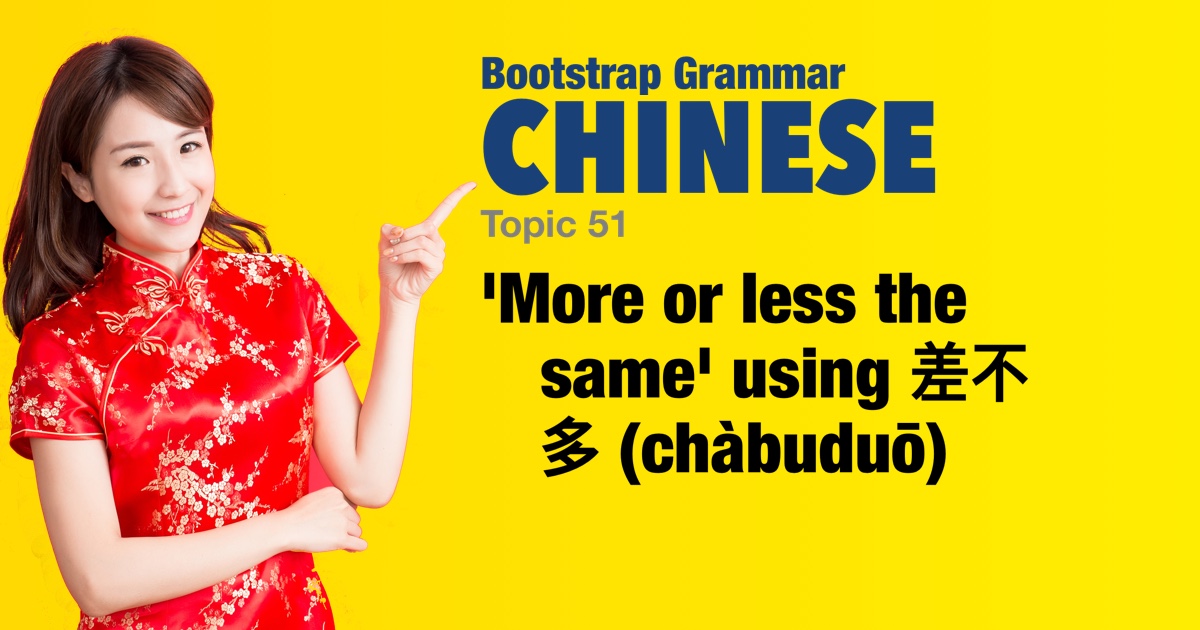Chinese grammar - 'More or less the same' using 差不多 (chàbuduō) |
|||
|
|||
The Chinese phrase 差不多一样 (chàbuduō yīyàng) means 'more or less the same'. But in spoken Chinese the 一样 can be dropped, and 差不多 means the same thing. — 差不多 literally means 'the difference is not much'. |
| Examples: | |
|
他和我差不多忙。
tā hé wǒ chàbuduō máng. He is about as busy as I am.
|
|
|
他和他哥哥差不多高。
tā hé tā gēge chàbuduō gāo. He and his brother are almost the same height. |
|
|
这本书和那本书差不多有趣。
zhè běn shū hé nà běn shū chàbuduō yǒuqù. This book and that book are almost equally interesting. |
|
|
他工作和你差不多努力。
tā gōngzuò hé nǐ chàbuduō nǔlì. He works almost as hard as you do. |
|
|
她和她妈妈差不多漂亮。
tā hé tā māmā chàbuduō piàoliang. She is almost as beautiful as her mother. |
|
|
这两个东西差不多。
zhè liǎng ge dōngxi chàbuduō. These two things are almost the same. |
|
|
我们的年龄差不多。
wǒmen de niánlíng chàbuduō. Our ages are almost the same.
|
|
|
他和我差不多高。
tā hé wǒ chàbuduō gāo. He is almost as tall as I am. |
|
|
今天和昨天的温度差不多。
jīntiān hé zuótiān de wēndù chàbuduō. Today's temperature is almost the same as yesterday's.
|
|
|
他的中文和你的差不多。
tā de zhōngwén hé nǐ de chàbuduō. His Chinese is almost as good as yours. |
|
|
他和她的性格差不多。
tā hé tā de xìnggé chàbuduō. Their personalities are almost the same.
|
|
|
他和她的工作时间差不多。
tā hé tā de gōngzuò shíjiān chàbuduō. Their working hours are almost the same. |
|
 |
|


 Literally: 'He + and + I + not much difference + busy'
Literally: 'He + and + I + not much difference + busy'
